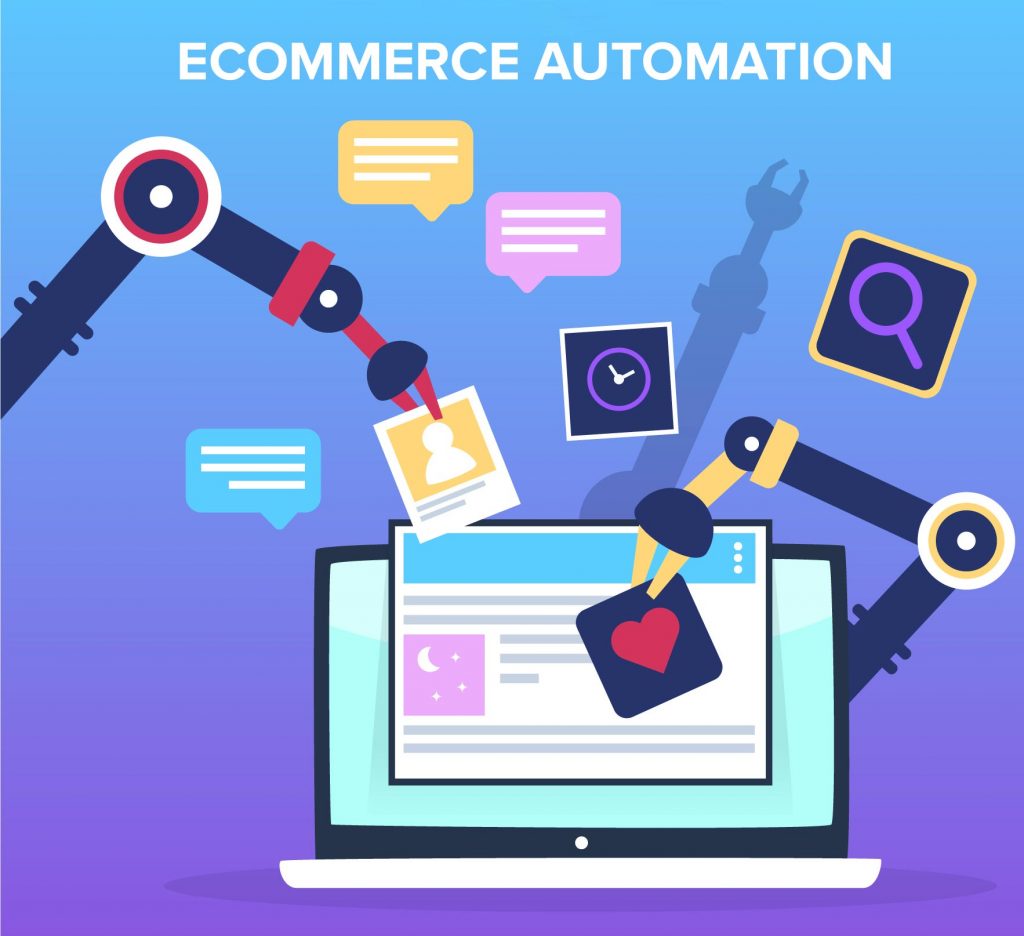Modern eCommerce enterprises require tools to help them bloom. However, the plethora of choices can…
What is eCommerce Automation?
eCommerce automation is a blend of software, processes, and mindsets that enable enterprises to eliminate manual action from the order lifecycle.
From content circulation to process amalgamation, eCommerce automation helps in saving time and money for businesses. Moreover, this method lessens unnecessary tasks and standard workflows to help you concentrate on driving your business forward.
Automating your eCommerce process increases efficiency and ensures consistency in its functioning like that for customer service, inventory management, payment and invoicing, returns/refunds, order management, email workflows, and shipping.
What Can You Automate?
Orders
EXTERNAL FACING – Clear and active communication of order information can help built faith of the customers in your company and your process. To achieve that, we recommend that brands establish four key external automation workflows for high-pitched activities:
- Purchase receipt and confirmation
- Shipping and delivery notifications
- Returns/refunds processes and documentation
Even though this list is not complete, still many clients have profited a lot from building a baseline with these workflows.
INTERNAL FACING – In the background, there are many phases of the purchase process that help your enterprise save time and lessen headaches. Amongst these, we suggest the merchants should automate the following:
- Inventory levels across all the selling channels
- Order processing connecting eCommerce platforms and fulfillment systems like 3PL, ERP or POS
- Accounting updates
However, these aren’t as flashy as, the external-facing workflows, they can yield significant value in a brief amount of time. If you haven’t thought of implementing internal automation for your business, we strongly encourage you to explore your alternatives and see what works the best for your business.
Marketing

Marketing automation isn’t a new concept; however, this field has bloomed considerably. Marketing automation in eCommerce enables businesses to acknowledge the issues of customer boosting repeat purchases.
There are unlimited opportunities for eCommerce marketing automation. But we have outlined some of the solid starting points for businesses:
- Post-purchase email marketing
- Abandoned shopping cart email workflows
- Approach property updates about the items purchased or behavior
- Retargeting promotion
- Customer regain campaigns
- Consumer feedback workflows
- Customer service chatbots
Each of these modes of marketing automation can benefit businesses to build connections with more customers in a shorter time. Although there isn’t a real substitute for human interaction, still implementing eCommerce automation can help many brands attain their marketing goals.
How Can It Help?

Automation increases functional efficiencies and consumer experience. Especially, eCommerce automation helps businesses to accomplish the following:
- Prevents overselling by maintaining inventory levels
- Exhibits consistent and reliable product data
- Guarantees orders are delivered as promised
- Makes refunds/returns effective and easy
- Enables customers to trace the shipping process
What Tools Can You Use?

eCommerce automation tools differ from one another based upon the goals and obstacles they intend to solve. When it comes to marketing, we usually recommend either Bronto or Dotdigital.
Both tools enable businesses to automate abandoned cart emails, reminders, run promotional campaigns, send welcome emails, behavioral-based marketing, and effortlessly integrate with eCommerce platforms.
ActiveCampaign and MailChimp is another option that you can explore. These tools connect easily with your store to update contact data with purchases, trigger automatic emails, and more. The best aspect of MailChimp is its simple integration with all prevalent eCommerce platforms like Shopify, WooCommerce, and Magento.
On the business front of things, the perks of automation tools are more distinct. If you aren’t getting what exactly you’re searching for, custom extensions can nearly always deliver you the desired functionality.
If you’re keen on exploring more about eCommerce, then click here to read our other blogs on eCommerce.
Still, got questions? Be comfortable to reach out to us through the comment section below, and we’d be delighted to help!








Leave a Reply